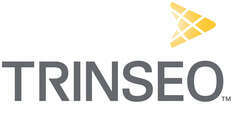- Trinseo receives recycled styrene monomer from Indaver's Antwerp plant, operational since August 2025.
- The recycled monomer is used in STYRON™ Polystyrene, MAGNUM™ ABS, and TYRIL™ SAN resins.
- These materials are drop-in equivalents to fossil-based versions, suitable for food contact applications.
- Trinseo provides cradle-to-gate Product Carbon Footprint information for different grades.

Introduction
Trinseo has begun incorporating chemically recycled styrene monomer (rSM) into its product lines, sourced from Indaver's new recycling facility in Antwerp, operational since August 2025. This initiative aligns with Trinseo's sustainability goals by reducing the carbon footprint of its materials.
Product Details
The recycled styrene monomer is used in Trinseo's STYRON™ Polystyrene, MAGNUM™ ABS, and TYRIL™ SAN resins. These materials are produced using the mass balance principle, ensuring they are drop-in equivalents to their fossil-based counterparts, including for food contact applications.
Applications and Benefits
The use of household packaging waste for depolymerization recycling supports circularity. For instance, a yogurt cup can be recycled back into a similar container. The resins are suitable for various applications, such as refrigerator liners, food trays, toys, furniture, and automotive parts.
Environmental Impact
Trinseo's approach results in a lower CO2 equivalent footprint compared to traditional fossil fuel-based materials. The company has developed a tool to provide cradle-to-gate Product Carbon Footprint (PCF) information for different grades, offering transparency to interested parties.

